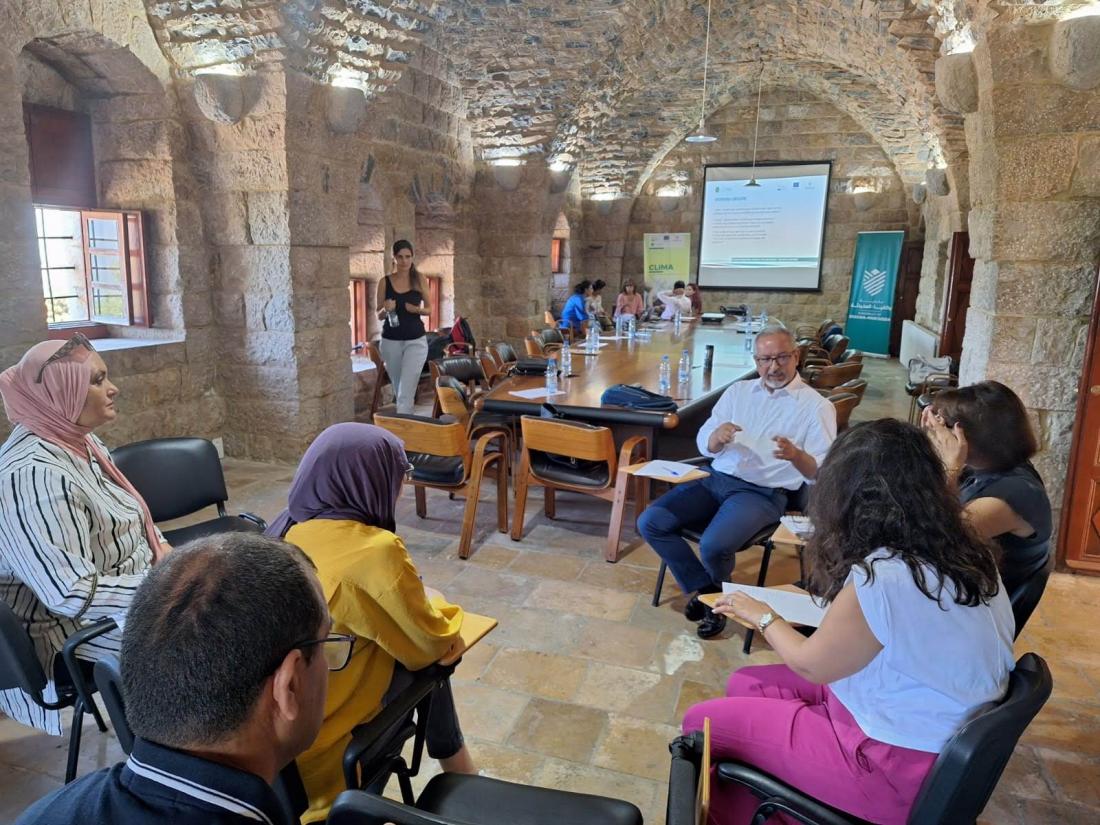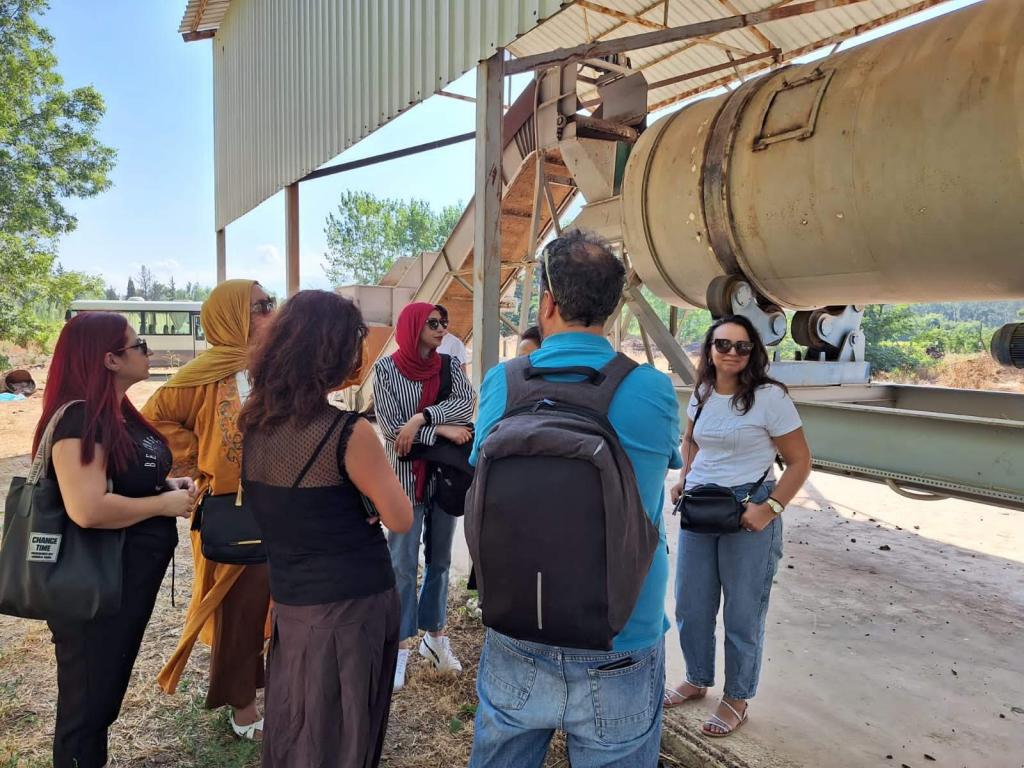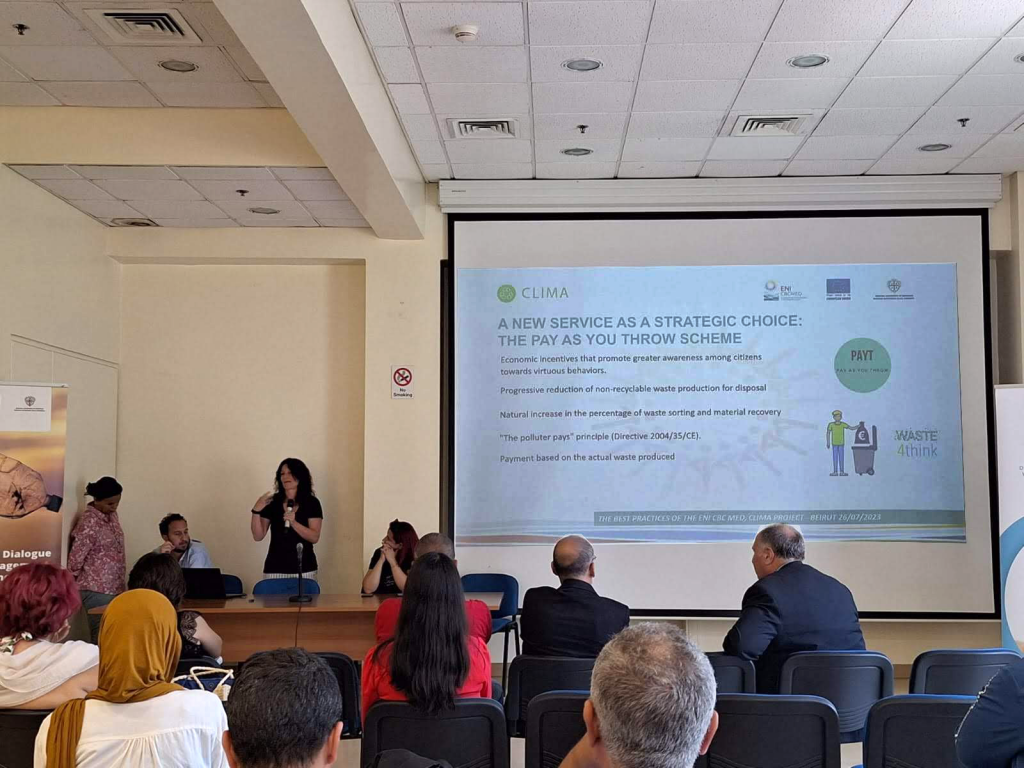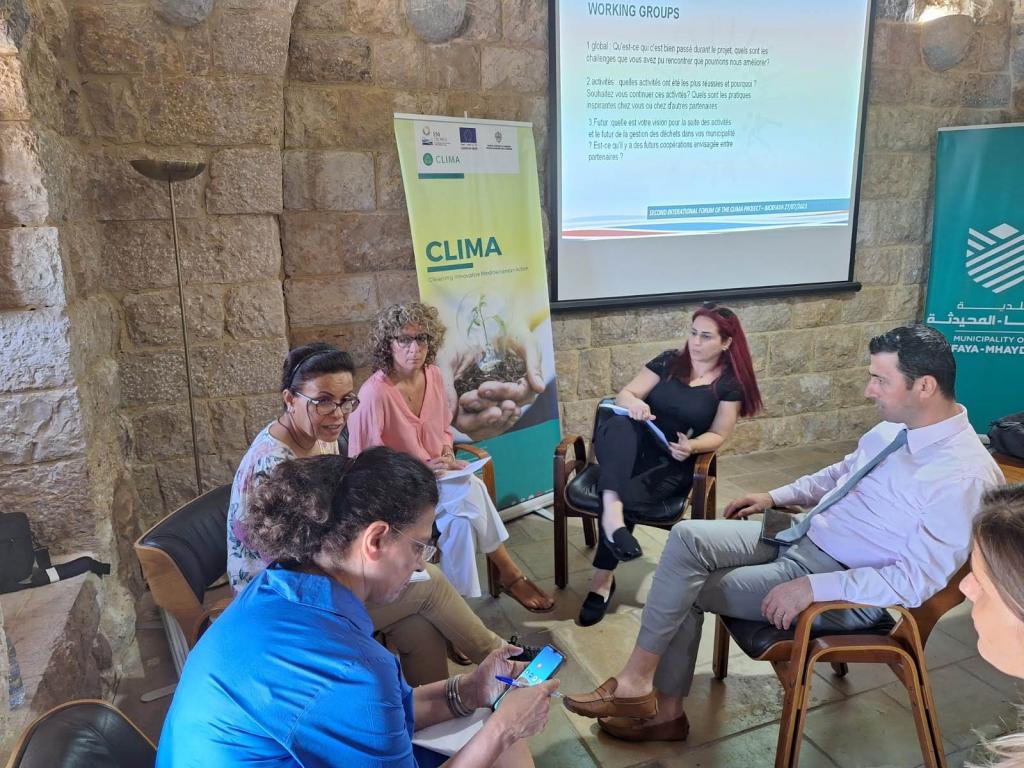Second International Mediterranean Forum of the CLIMA Project: Fostering Circular Economy and Green Cities

From July 25th to 27th, 2023, the picturesque landscapes of Lebanon served as the backdrop for the second international forum of the CLIMA project, an initiative funded by the European Union to promote environmental sustainability and waste reduction in the Mediterranean region. The forum brought together partners from Italy, Tunisia, and Lebanon, uniting their shared vision of creating greener cities and fostering circular economy practices.
As the forum commenced, excitement filled the air as representatives from the partner countries reunited after months of collaborative efforts. The event served as an occasion to reflect on the remarkable journey they embarked on since the project's inception, exchanging insights on the successes, challenges, and methodologies employed to promote the zero waste approach in the three targeted cities.

The forum's agenda was packed with insightful activities, providing the partners with a unique opportunity to explore and learn from each other's experiences. One of the highlights of the event was the visit to the municipality of Bickfaya, where the partners had the chance to witness firsthand the commendable waste management practices implemented by the local authorities. Among the innovative practices showcased was the pilot compost membrane facility, a testament to the city's commitment to sustainable waste management.
The partners also visited the municipal compost site of Tanayel, a pilot project supported and developed by the CLIMA project.
In addition to local visits, the forum also encompassed participation in a conference hosted by the American University of Beirut. The conference provided a platform for the CLIMA project panelists to shine a spotlight on the technological innovations that were instrumental in transforming waste management practices in the three countries. The panelists proudly presented the Pay As You Throw (PAYT) tariff system, worm composting, and membrane composting as groundbreaking initiatives that have significantly reduced waste and advanced circular economy practices.

The exchange of knowledge and experiences continued as each country's partners delivered presentations on the activities implemented within their respective regions. This comprehensive sharing allowed all participants to glean valuable insights into each other's approaches, lessons learned, and best practices. The partners engaged in fruitful discussions, finding common ground despite the unique circumstances and challenges faced by their cities. The forum served as a platform for forging stronger bonds, fostering cross-border cooperation, and nurturing a collective commitment to sustainability.
A significant highlight of the forum was the unveiling of the guide titled "Toward a Municipal Waste Management Plan 2.0." This comprehensive publication is a testament to the combined efforts of the partners, encapsulating their journey towards sustainable waste management during the four-year duration of the CLIMA project. It serves as a valuable resource for future endeavors in advancing circular economy practices and promoting environmentally responsible urban development.
Throughout the forum, the partners celebrated the achievements of the three cities involved in the project. The city of Sestri successfully implemented the Pay As You Throw tariff, which incentivized waste reduction and raised awareness about individual environmental impact. In Bickfaya, the establishment of the pilot composting site marked a significant milestone in autonomous organic waste management. Meanwhile, Mahdia experimented with selective waste collection in a pilot neighborhood and proudly unveiled a composting station under municipal management.

As the forum drew to a close, the partners left with renewed determination and inspiration. The event marked both an achievement to be celebrated and a new beginning for the journey ahead. It solidified their commitment to fostering greener cities and adopting circular economy practices that can significantly reduce waste and its impact on the environment.
The second international forum of the CLIMA project had not only strengthened collaboration but also planted the seeds of lasting change in the hearts of those committed to preserving our planet for generations to come.









